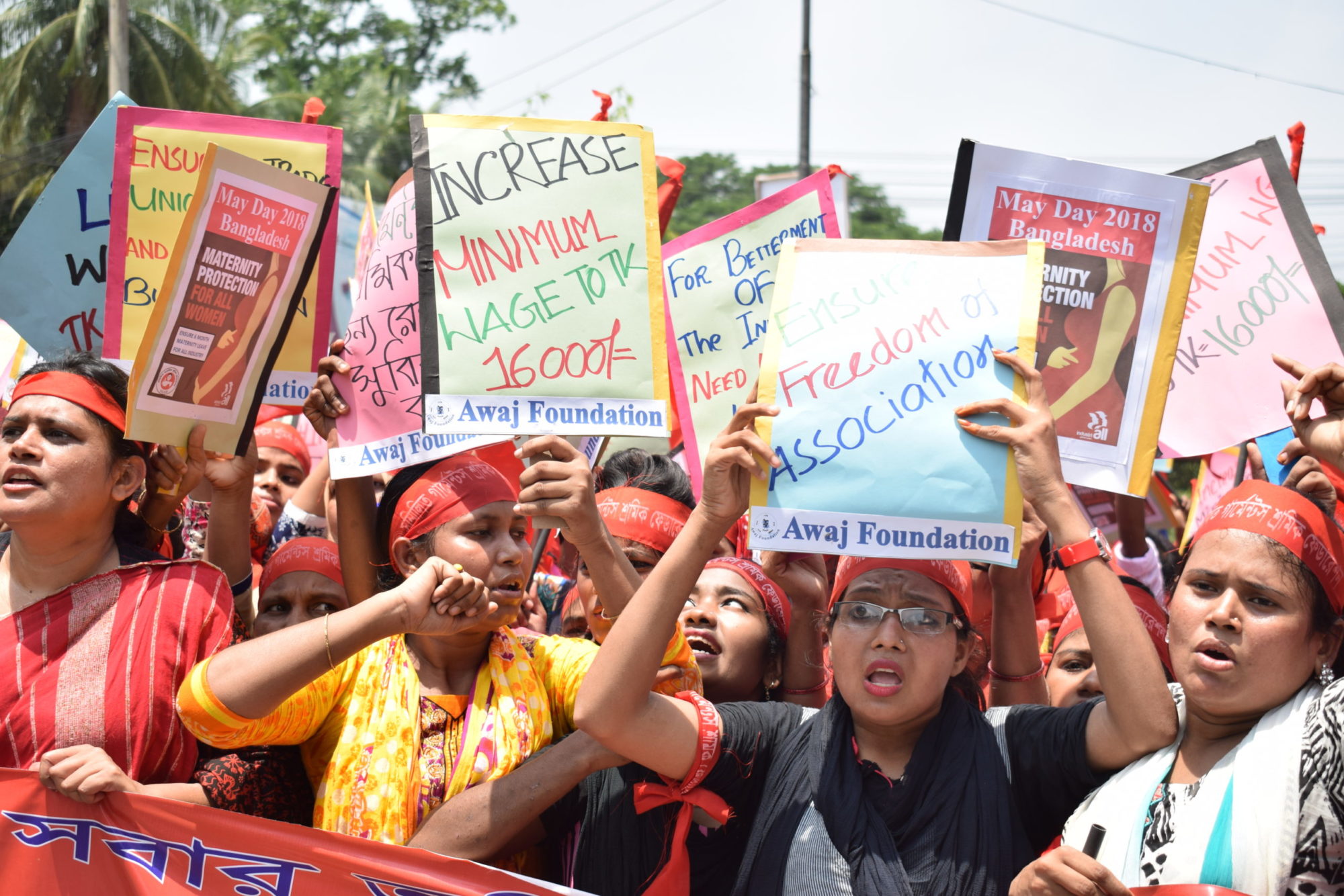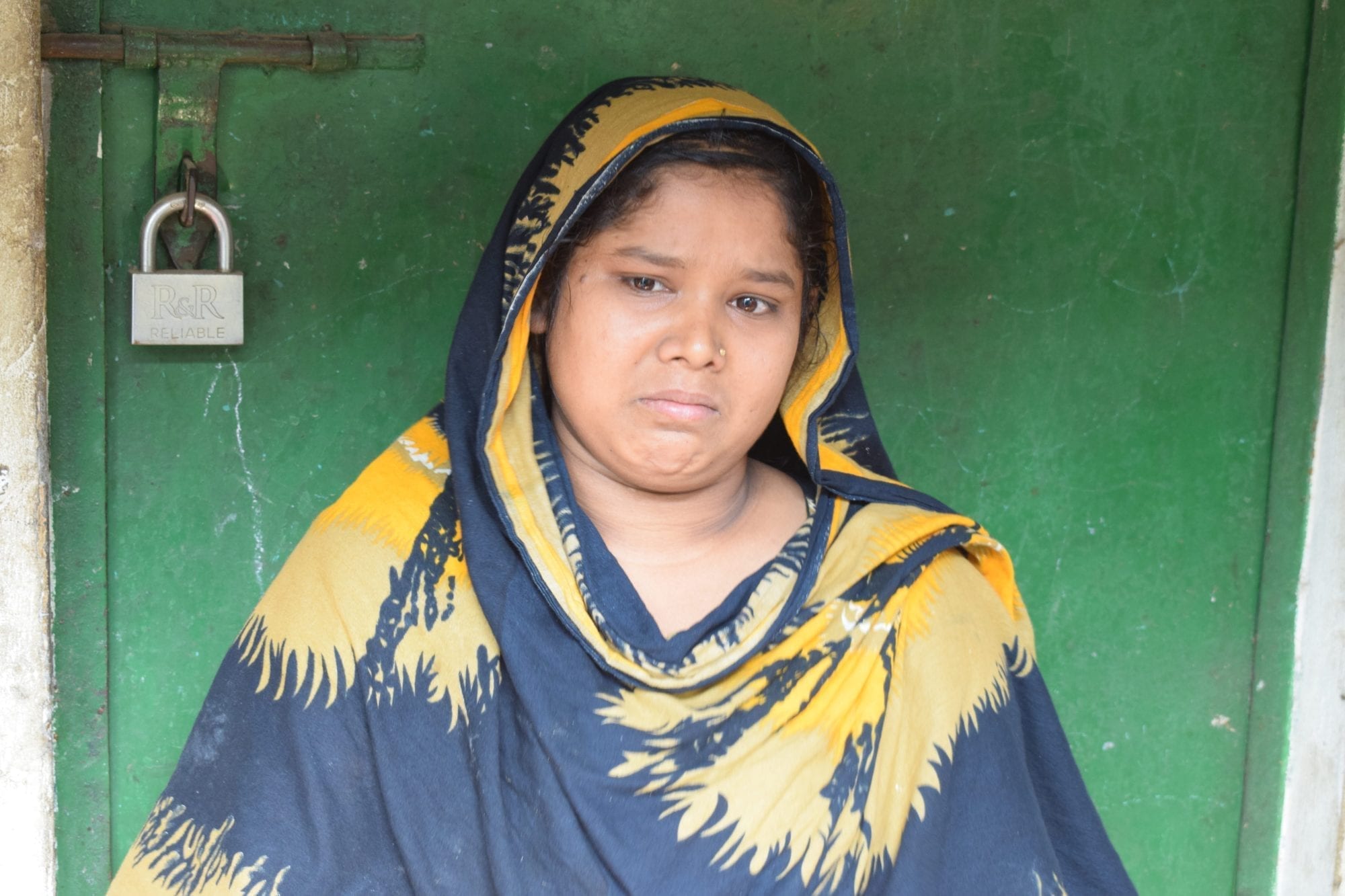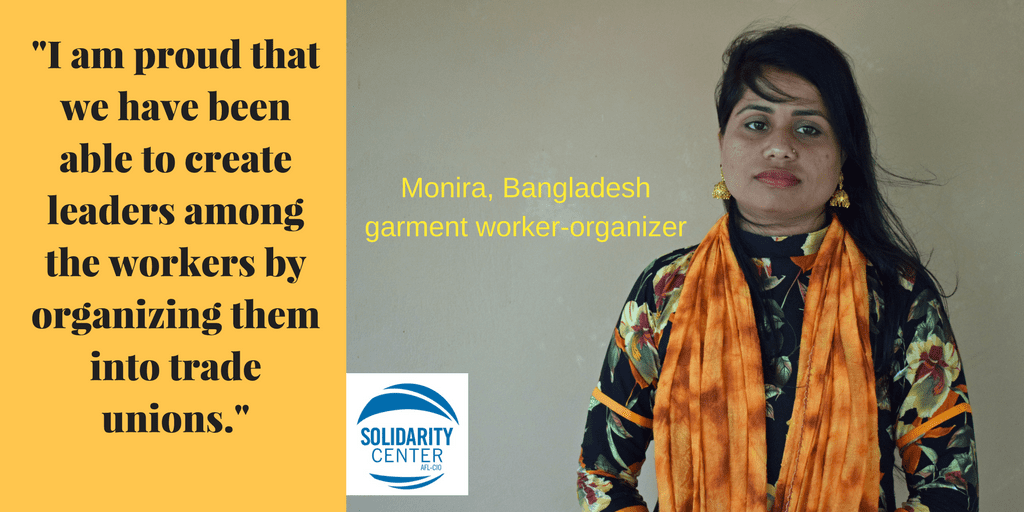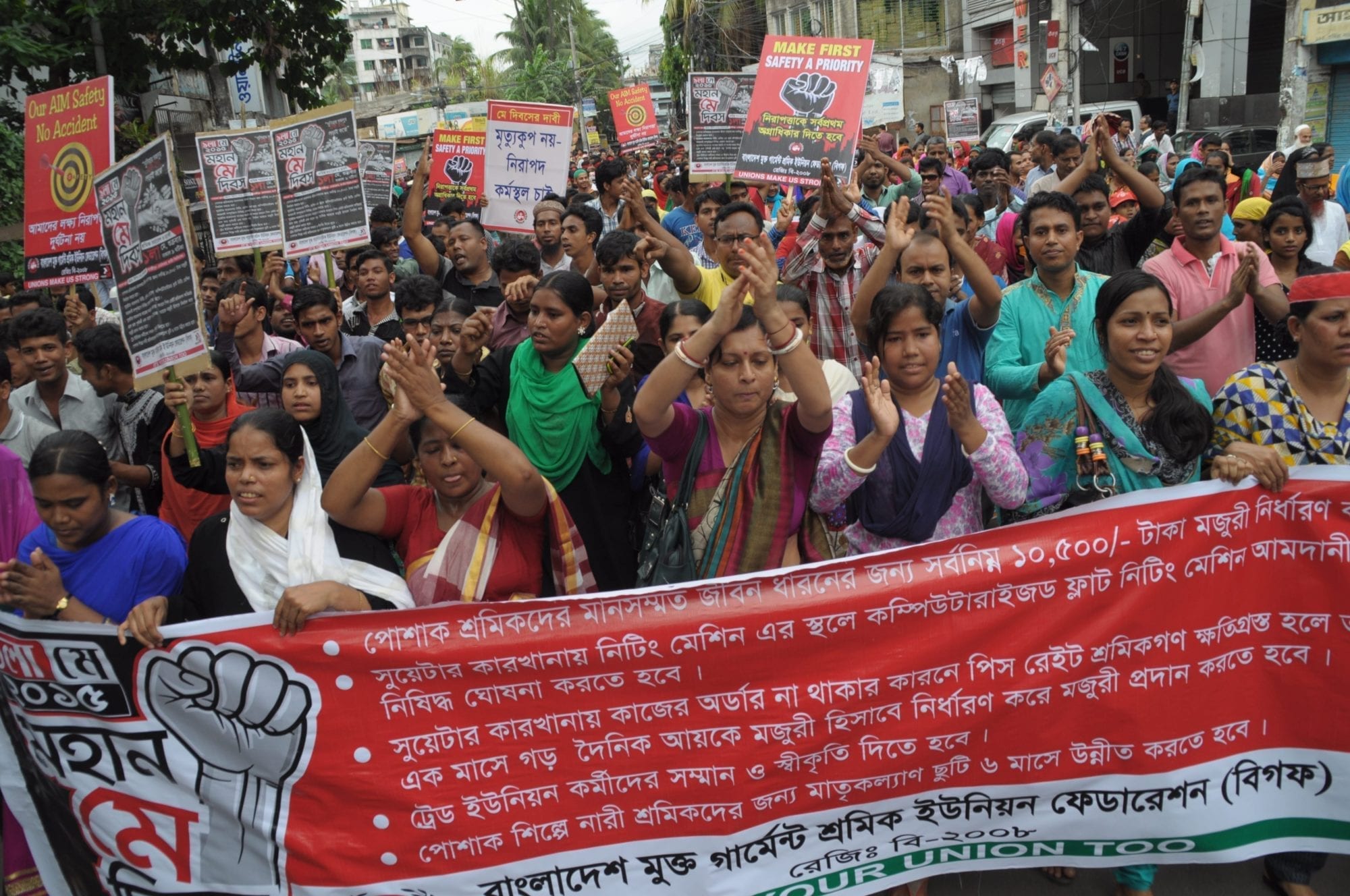Following the Rana Plaza collapse in which 1,134 garment workers were killed and thousands more injured in Bangladesh, the horror of the incident spurred international action and resulted in significant safety improvements in many of the country’s 3,000 garment...

The Solidarity Center advances worker rights in Bangladesh in partnership with independent unions in the garment, seafood processing, and tannery sectors. Credit: Solidarity Center/Musfiq Tajwar
In Bangladesh, the Solidarity Center advances worker rights in partnership with independent unions in the garment, seafood processing, and tannery sectors, and promotes the rights of Bangladeshi migrant and domestic workers. The Solidarity Center also partners with Bangladesh unions to conduct gender equality training, to help counter gender-based violence and harassment at work that is sometimes used as a tool to intimidate workers. (See a summary of our recent projects. আমাদের সাম্প্রতিক প্রকল্পগুলির একটি সারসংক্ষেপ দেখুনঃ)
Through training on safe migration and anti-human trafficking, Solidarity Center joins with grassroots partners to call for decent work for Bangladeshi migrants, many of whom are targets of unscrupulous brokers (dalals) that send them to work in dangerous, often inhumane conditions.
The Solidarity Center supports several Worker Community Centers (WCCs), where workers and community members come together to learn about their rights and build collective power to claim them, train to become effective advocates for critical health and education services, and positively engage in the civic and economic life of their communities.
The Solidarity Center also provides legal assistance to workers in Bangladesh’s Export-Processing Zones (EPZ) to assist them in defending their rights. EPZ workers are subject to a different, much weaker set of labor laws than workers in the rest of the country, and these laws do not meet international standards for freedom of association or collective bargaining.
Although collective bargaining remains extremely difficult in Bangladesh, and often provokes employer retribution, with support from the Solidarity Center unions are negotiating groundbreaking, gender-responsive collective bargaining agreements to improve wages and working conditions. The Solidarity Center also has trained thousands of workers on fire and building safety since the Tazreen Fashions and Rana Plaza tragedies in 2012 and 2013 where more than 1,200 garment workers lost their lives.
Bangladesh Garment Workers Stand up for Rights at Work
Five years after the deadly Rana Plaza building collapse in Bangladesh, workers and union activists say despite the massive demand from workers for union representation to achieve safe workplaces, worker-organizers must face down threats, harassment and violence to...
Giving Voice to Hope in Bangladesh
The three-year anniversary of the November 24, 2012, fire that killed 112 Bangladesh garment workers at the Tazreen Fashions Ltd., factory offers a time to reflect on garment workers’ ongoing struggle for workplaces where they will not be killed or injured and for...



